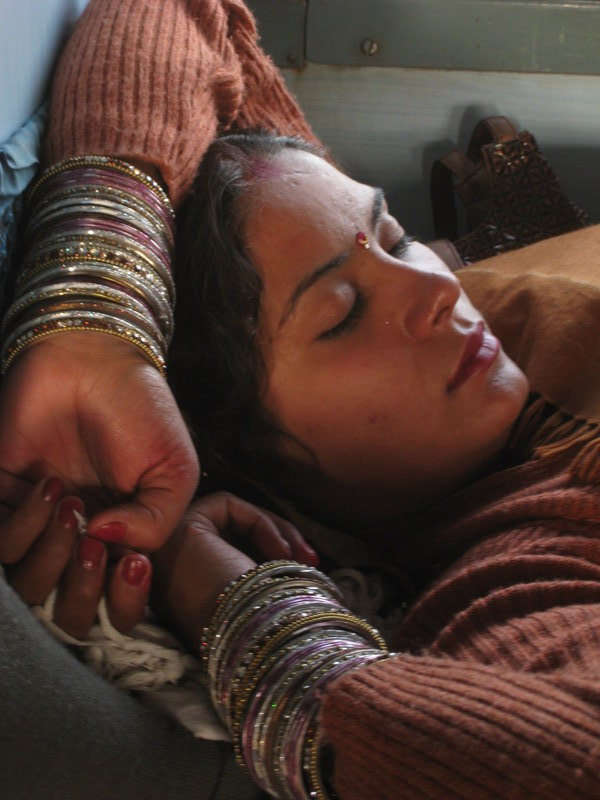The last time when my friend Sheena visited me from Noida who was on her official trip to Mumbai, I came to know of a strange aspect of her life. She stayed overnight with us and yes, it was her sleep pattern. I tried to make her stay comfortable as she faced difficulty sleeping. We chatted the major part of the night, and as I started feeling sleepy, she was well awake. She requested me a hot glass of milk with saffron (kesar) and turmeric (haldi) in it. She told me that she can’t sleep without consuming this decoction. Anyway, I reluctantly brew this decoction for her, but this set me thinking…
Are you the one who finds it difficult to sleep without following any such routine? Are you suffering from sleep deprivation? Sleep doesn’t come naturally to you?
This is a modern-day phenomenon, earlier people worked through the day and slept well through the night. “Early to bed and early to rise” was the mantra. But as times changed our sleeping and waking habits changed. We were up till wee hours and slept till mid-day, especially on weekends. Screen time increased manifold which gave us mental fatigue but led to a lack of sleep.
We remember, in our childhood, our mothers struggled to put us to sleep. She will tell stories and sing lullabies which induced sleep in the child naturally. We woke up happy in the morning after night long sleep. But now, many are suffering from sleep deprivation, and there is a term for that- Insomnia.
Until the 1950s, we thought of sleep as a passive, dormant part of our daily lives. Fast forward 70 years and we now know that our brains are very active during sleep. Moreover, sleep affects our daily functioning and our physical and mental health in many ways that we are just beginning to understand.
This thought triggered in my head again when I recently saw a front-page ad in the Times of India about sleep-inducing gummies. I didn’t know any such thing before seeing this ad. I read it twice/ thrice to absorb that there could be gummies that can induce sleep. I thought of recommending these to my friend Sheena but abstained from doing so…
…why?
These Sleep gummies aren’t a long-term fix.
While there is some evidence that short-term use of sleep gummies could be effective for those with temporary jet lag, delayed sleep-wake disorders, and some shift workers, there’s not resounding evidence for long-term use. And in some cases, you may just be masking another problem.
How do these gummies work?
Melatonin is a hormone that regulates your sleep timing. Taking it in supplement form can be helpful for quickly tweaking your body clock, but experts agree it should not be consumed nightly.
Hence, I did not recommend these to Sheena.
How can you overcome insomnia with or without following any regimen as in the case of Sheena?
You can establish a quiet and relaxing bedtime routine. Just relax your body and make your bedroom conducive to sleep. You can put clocks in your bedroom out of sight. If you have the habit of consuming caffeine or any other beverage or alcohol, limit the consumption and consume it several hours before bedtime. If you are a smoker, puff it off a few hours before bedtime. Get regular exercise and go to bed only when you’re sleepy.
What is the cure for insomnia?
If you are a chronic insomniac, a warm bath or a massage before bedtime can help prepare you for sleep. Create a relaxing bedtime ritual, such as taking a hot bath, reading, soft music, breathing exercises, yoga or prayer. Avoid trying too hard to sleep. The harder you try, the more awake you’ll become.
Simple ways to fall asleep as fast as possible:
- Lower the temperature.
- Use the 4-7-8 breathing method.
- Get on a schedule.
- Experience both daylight and darkness.
- Practice yoga, meditation, and mindfulness.
- Avoid looking at your clock.
- Avoid naps during the day.
- Watch what and when you eat.
- Listen to relaxing music.
- Exercise during the day.
- Get comfortable.
- Turn off all electronics.
- Try aromatherapy.
- Practice writing before bed.
- Limit caffeine and drink a soothing beverage.
The amount of sleep each person needs depends on many factors, including age. Infants generally require about 16 hours a day, while teenagers need about 9 hours on average. For most adults, 7 to 8 hours a night appears to be the best amount of sleep, although some people may need as few as 5 hours or as many as 10 hours of sleep each day. Women in the first 3 months of pregnancy often need several more hours of sleep than usual.
People tend to sleep more lightly and for shorter time spans as they get older, although they generally need about the same amount of sleep as they needed in early adulthood. About half of all people over 65 have frequent sleeping problems, such as insomnia, and deep sleep stages in many elderly people often become very short or stop completely. This change may be a normal part of ageing, or it may result from medical problems that are common in elderly people and from the medications and other treatments for those problems.
Following a disciplined regimen may help you get a good night’s sleep in whichever age bracket you are in.
So, try following the above tips for a good night’s sleep.
++++++++++++++++++++++++++++++++++++++++++++++++++++++++++++++





